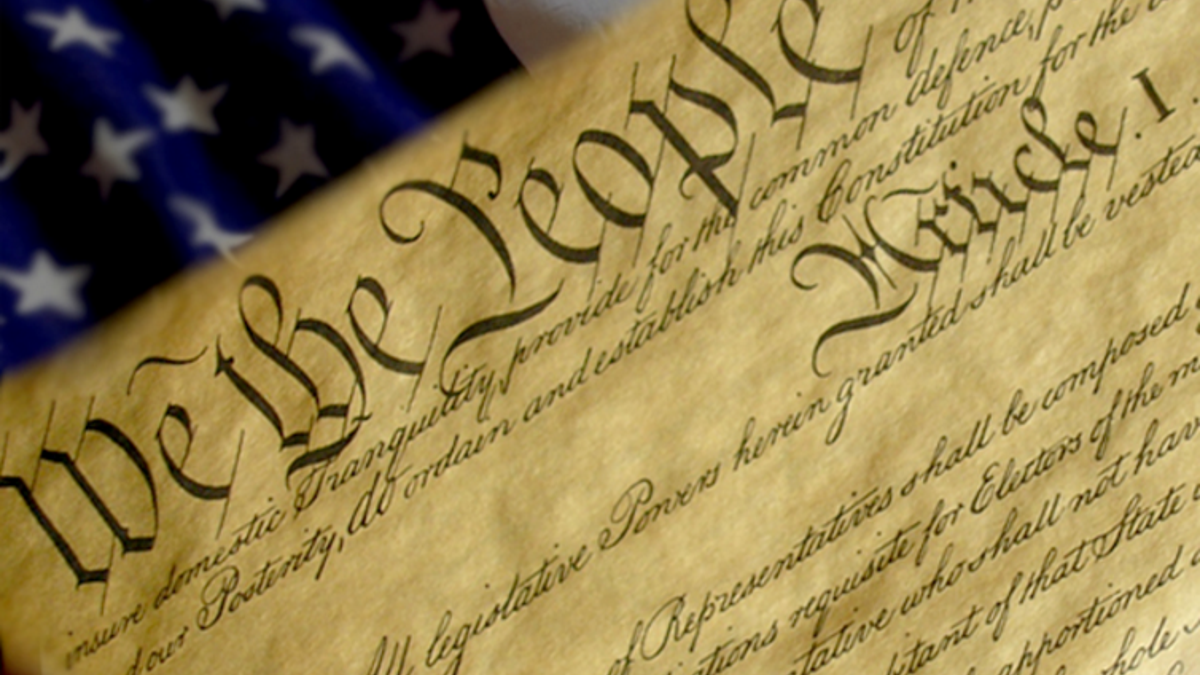
FILE (AP)
The Athens of Socrates, the Florence of da Vinci, the London of Shakespeare – these were impressive places, but none nearly as history-altering as the Philadelphia of the American rebels. On May 25, 1787 – 231 years ago Friday – the rebels began the convention that drafted the U.S. Constitution. It is the most readable, practical and liberating wonder of the world.
We see the Constitution as a beginning for our country, but for the Founding Fathers it seemed like a last chance. A total of 55 delegates gathered from across our young nation with the mission, said Virginia’s Edmund Randolph, of “preventing the fulfillment of the prophecies of the American downfall.”
The states were weak, trapped in hostile trade and border disputes with each other, encircled by European empires, and sunk in economic depression after eight years of the Revolutionary War.
Over 100 sweltering summer days, in a room in the Pennsylvania State House cozy enough for conversational voices and filled with flies, the delegates jousted over every aspect of a new governmental structure.
There was consensus on basics like the need for a limited government, divided into three branches. But what’s striking is how little the delegates agreed on.
Should the executive be a single person, or a committee? Were citizens an enlightened repository of wisdom to be frequently consulted, or an unthinking mob to be tactfully restrained? Should each state get two senators, no matter its size? In the debate over that last question, the convention nearly broke up in anger.
The framers of the Constitution were mostly eminent planters, merchants and lawyers. But in other respects they were a microcosm of our nation, then and now: they included alarmists, optimists, philosophers, bores, dealmakers, handwringers and comedians – like the 81-year-old Benjamin Franklin. Franklin won approval for the process of impeaching presidents by observing that without it, the sole method of premature removal was assassination.
Some, like James Madison, rose to immortality. Others – like James Wilson, the Scottish-born genius who rivaled Madison in his influence, and who gave us the words “We the People” – died poor, diseased and alone, while fleeing creditors.
What lessons does the Constitutional Convention offer today?
For one thing, it serves as a bracing reminder that the supreme political achievement in American history was born of mutual concession, moderation and practicality. The Constitution is a jigsaw puzzle of compromises that left no delegate fully satisfied.
Madison, the supposed “father” of the Constitution, was quite ready to disown paternity, grumbling in private that the final draft would fail to “answer its national object.”
Yet Madison assented to Franklin’s closing plea: that every member who “may still have objections to it” – meaning virtually all of them – “would, with me on this occasion, doubt a little of his own infallibility” and suppress tolerable disagreements for a higher unity.
Our fights in interpreting the Constitution, like the fights embodied in so many of the Constitution’s clauses, were inevitable. The founders bequeathed these to us, too, in the majestic ambiguities of the document’s 4,400 words.
One of the most telling moments at the convention came when a delegate named Rufus King asked what precisely the framers meant in using the words “direct taxation” – no small question. Madison recorded: “No one answered.” The fight over that phrase, and 10,000 other textual conundrums, would be kicked to future generations.
The founding era is often described as a golden age of brotherhood and unanimity. Hardly. Madison and Alexander Hamilton joined to compose the famed Federalist essays in order to urge New York’s ratifying convention to adopt the Constitution. It worked, barely: the Constitution was ratified in New York by a vote of 30-27.
The Constitution won by similarly slim margins in Massachusetts and Virginia.
But once the Constitution went into actual operation, Madison and Hamilton became enemies who went toe-to-toe on issue after issue – like the federal debt, a national bank and foreign affairs. Madison came to despise his old ally as a monarchist. Hamilton called Madison “perfidious.”
The revolutionary triumph was to ensure that our constitutional clashes, which are really clashes over raw power, were resolved by lawyers making arguments instead of soldiers fighting battles; at dinner table disputes instead of in bloody street fights; and with declamations from newspapers instead of by raids on them.
No people on Earth have sought so reverentially to apply the wisdom of their nation’s founders to the present day. We parse their words, recount their deeds, build monuments to them, name cities and streets after them, and study them in school from childhood to college.
But the task is not to attempt to insert the founders into contemporary debates – usually with sentences beginning: “The founders would have said.” We have every reason to suspect that those titans would have had differing opinions on just about every issue today, as surely as they did over issues in their own time.
We should instead confront our frictions in the best spirit of 1787 – a spirit of intelligence, creativity, compromise, high principle and a prophetic regard for the liberty of those to come.
“We may well remind ourselves that there is not only a past and a present, there is also a future. And we are among its founders,” said Robert H. Jackson, later a Supreme Court justice, in 1937.
We are rightly grateful to the framers of the Constitution. If they could peer down on us today, I think they would return the feeling.
Nine generations of Americans have loyally preserved their handiwork, far longer than most of the delegates in Philadelphia dreamed possible. We today, no less than the founders themselves, are indispensable participants in the noblest adventure in freedom the world has ever known.
